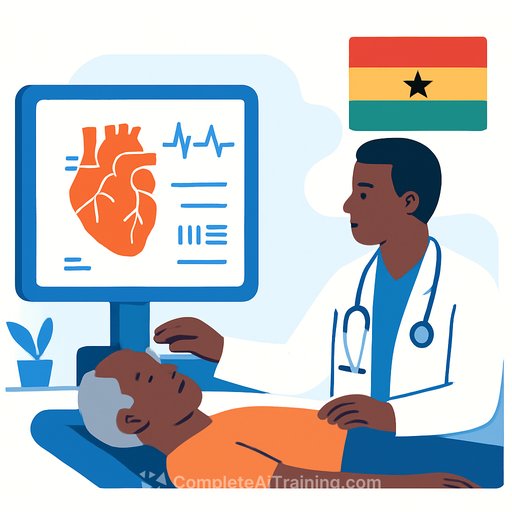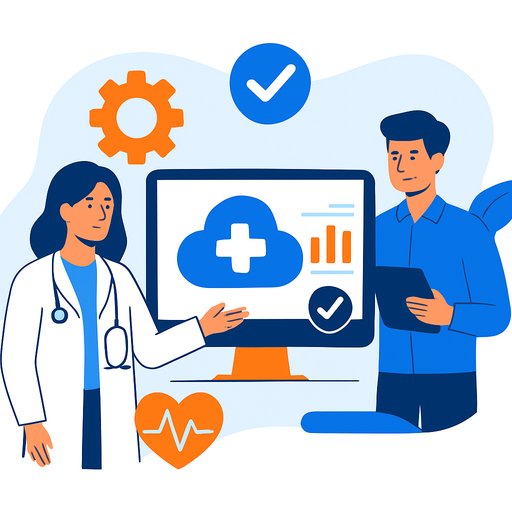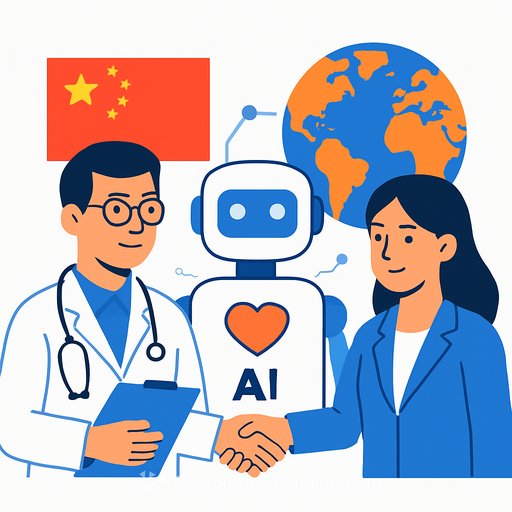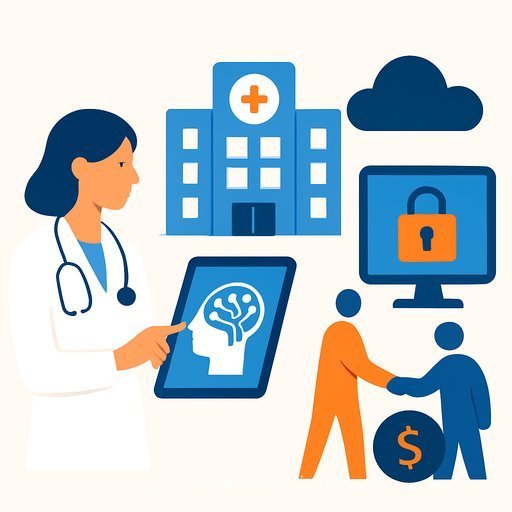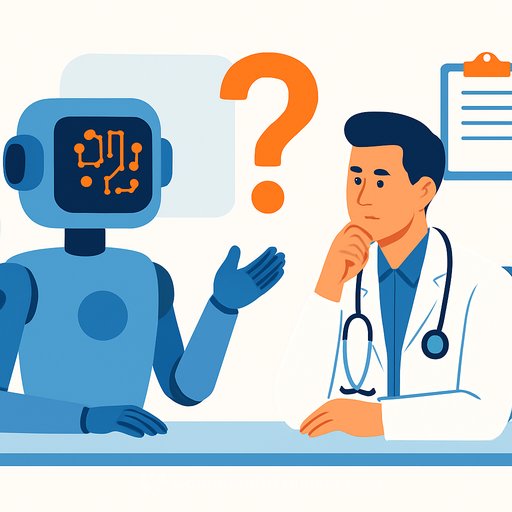AISAP advances medical diagnostics in Africa
AISAP is rolling out AI-enabled cardiac ultrasound across clinics and hospitals in Ghana, bringing specialist-level insight to the point of care. The goal is straightforward: catch heart failure and valvular disease early, act faster, and cut avoidable complications.
Local teams are conducting thousands of cardiovascular assessments across multiple sites. The technology is being embedded in routine workflows, even where infrastructure and staffing are thin.
Real-time cardiac imaging where it's needed most
Clinicians can capture focused cardiac scans with portable ultrasound devices and receive AI-supported interpretations in minutes. This reduces dependence on on-site cardiologists and large tertiary centers, without disrupting existing triage and referral pathways.
For frontline staff, the value is speed and consistency: clearer decisions on who needs referral, who can be managed locally, and what to monitor next visit.
How the system works
AISAP's platform has U.S. FDA authorization and pairs portable ultrasound with automated analysis to guide image acquisition and interpretation. The result is standardized scans, immediate feedback, and a smoother handoff to specialty care when needed.
- Training and usability: Short onboarding with AI-guided views helps non-cardiology staff capture diagnostic-quality images.
- Connectivity: Cloud workflows support asynchronous review; offline capture with later sync can keep rural sites moving.
- Quality and safety: Built-in consistency checks and the option for specialist overreads support QA and escalation protocols.
- Data governance: Plan for consent, encryption, and local regulatory requirements before scaling across districts.
- Operations: Budget for device upkeep, battery management, and probe hygiene to maintain uptime.
- Metrics to track: time-to-diagnosis, referral completion, HF therapy initiation, and image-quality scores.
Partnerships and planned expansion
The initiative runs with the Global Alliance for Community Transformation (G-ACT), backed by Sheba Medical Center and its ARC innovation arm, and connected to U.S. medical and academic partners. Expansion to additional regions is planned by 2026, alongside multi-site research on AI's role in cardiovascular diagnostics in underserved populations.
Learn more about the health system partner at Sheba Medical Center. For regulatory context, see the FDA device database.
Addressing access gaps in Ghana
Rural and remote communities face limited staffing, scarce diagnostic equipment, and long travel times to specialty clinics. These barriers delay detection and treatment of chronic cardiac conditions.
By moving accurate diagnostics to the patient, AISAP helps teams trigger earlier interventions, optimize referrals, and reduce preventable morbidity.
What this means for healthcare leaders
- Deployment model: Equip district hubs and spoke clinics; authorize nurses, PAs, or community health officers to scan with remote cardiology backup.
- Training: Establish short credentialing pathways and refreshers; include image-quality audits in routine supervision.
- Integration: Align with existing referral networks and medications supply for heart failure and valvular disease.
- Financing: Blend MOH budgets, NGO support, and grants to cover devices, data, and maintenance.
- Ethics and equity: Monitor performance across demographics; set clear thresholds for escalation on inconclusive scans.
Voice from the field
"This initiative reflects our mission: access to advanced cardiac care should not be dictated by geography," said Adiel Am-Shalom, CEO of AISAP. "We're bringing the same FDA-cleared technology used in major U.S. hospitals to frontline teams in Ghana, with cloud-based insights that close the diagnostic gap, including in rural U.S. hospitals facing cardiologist shortages."
Looking ahead
With broader rollout targeted by 2026, expect stronger data on clinical outcomes, cost-effectiveness, and workforce impact. Health systems that prepare now-training staff, setting QA standards, and aligning referral capacity-will see the fastest gains in earlier detection and timely treatment.
If your team is building AI literacy for clinical operations and diagnostics, explore role-based options here: AI courses by job.
Your membership also unlocks:

